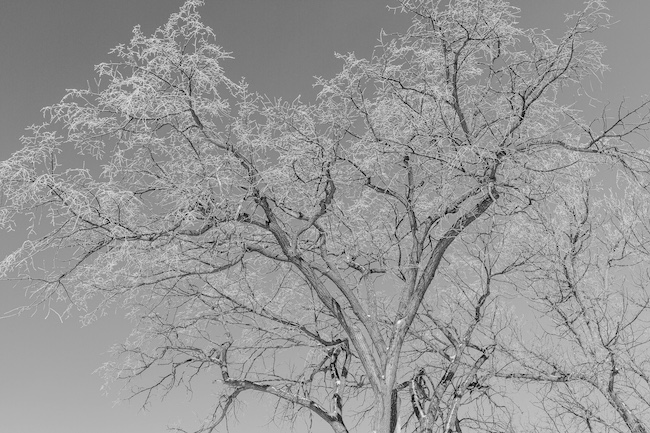Lately, I’ve been thinking about trees, specifically my maternal family tree.

I come from my two times great grandmother, Maria. Maria was born in the Netherlands in the mid-1850s into a Dutch Anabaptist family. Mennonites were tolerated, but faced restrictions in the Netherlands due to their pacifist beliefs and refusal to serve in the military or swear oaths. Many left. Maria’s family immigrated to the Neuendorf village in the Mennonite Chortitza Colony in South Russia (now Ukraine). Whether this was with her parents or after she married Peter, I don’t know. I find scant evidence that Maria had only two daughters. Occasionally, I obsess for a few days and get lost in research, but details are sketchy at best. Many of the Chortitza Colony records are lost forever—the Neuendorf records were taken by the Bolsheviks and destroyed. Maria may have died at around age 40.
Maria’s daughter, Margaretta, was born in 1868 in the Osterwick village in Chortitza Colony. She was the first of my grandmothers to immigrate to Canada and become a Canadian citizen. She and her husband, Isaac, had a total of 11 children—4 of whom died as infants. Margaretta was 39 years old in 1907 when the family arrived in Canada on the SS Mount Royal with seven children in tow, the youngest just nine months old. Margaretta lived until age 77.
Margaretta’s daughter, Maria, born in 1893 in Osterwick in the Chortitza Colony, broke ground and homesteaded with her husband Jacob here in Saskatchewan, a little over an hour away from where I live now. She had a son and three daughters, and died at age 46.
Maria’s middle daughter, Mary, was my mother. She married John, who was abusive to her, and the couple soon separated. Separated, but never divorced, Mary went on to give birth to four children—each with a different father. She raised only one of them (not me) and wrestled with low self esteem throughout her life. She died suddenly at age 59.
One might say that women I descend from were unremarkable. At least one of them was troubled. My grandmothers didn’t start schools or hospitals or do anything extraordinary to preserve their name in a history book. They were daughters, wives, mothers, and friends. Women. They faced trials that I’d be hard-pressed to endure. They worked hard and did the best they could through trying times.
I knew none of these women, except Mary, for the 40 weeks she carried me, but I think about them all sometimes. I look forward to meeting them in the afterlife. I honour my strong mother and grandmothers by bringing their stories (as much as I know about them) into the light and celebrating the piece of each one within me. I’m pleased me to know that I have passed something of each woman on to my daughter and granddaughter.
On the surface, my life today is relatively easy when compared to that of my mother and grandmothers. It has not always been so. Lest I, and all of us, forget, we come from lines of women who struggled and persevered. Life has always been difficult.
Some women rose up and forced change; others tended home fires and made the world around them better for them having been there. I believe my grandmothers were in the latter category. I believe I’m in the latter category.
The inherent worth of a woman (or man, for that matter) is not measured by the volume of her voice or the magnitude of change she forces in her sphere of influence. The value of a woman hinges solely on the truth that she is a created image-bearer of the divine and, in that, is beloved beyond measure and comprehension. We are not all called the same. Sometimes, I forget that.
I printed out a little graphic like the one at the top of this post and hung it up in my office to remind me of the women I came from who remain alive in my musings and those who come after me. Maria > Margaretta > Maria > Mary > Linda > Laurinda > Makiya. We each have our own path and work to do.
So, what’s the point?
Life has always been hard. Injustices like we’re seeing today are nothing new. Ask my great-great-grandmother, Maria, what her life was like as a persecuted woman. We make a life in the midst of it. And it’s still hard.
Great-grandmother Margaretta lost four children in infancy and, based on gaps in the birth years of her children, conceived others who never made it to term. She left her homeland and extended family behind for a promised better life here in Canada. She lived a good, long life here.
Grandmother Maria could never have imagined what would spring forth from the land she homesteaded with her husband. Lentils, not wheat, grow there now. The buildings are gone, but the view of the endless prairie sky is as breathtaking as ever. Her children are gone, but her grandchildren, their children, and their children’s children are thriving in a world that’s a little bit wonky right now but still as beautiful as can be.
And Mary. Oh, Mary. I wish I could tell you that it all worked out in the end. Maybe you already know that.
Allow me to leave you with words from mystic Teresa of Avila that I read this morning. I’m holding them in my heart, maybe you’ve got space for them too.
Let nothing upset you; let nothing frighten you. Everything is changing; God alone is changeless.


Leave a Reply